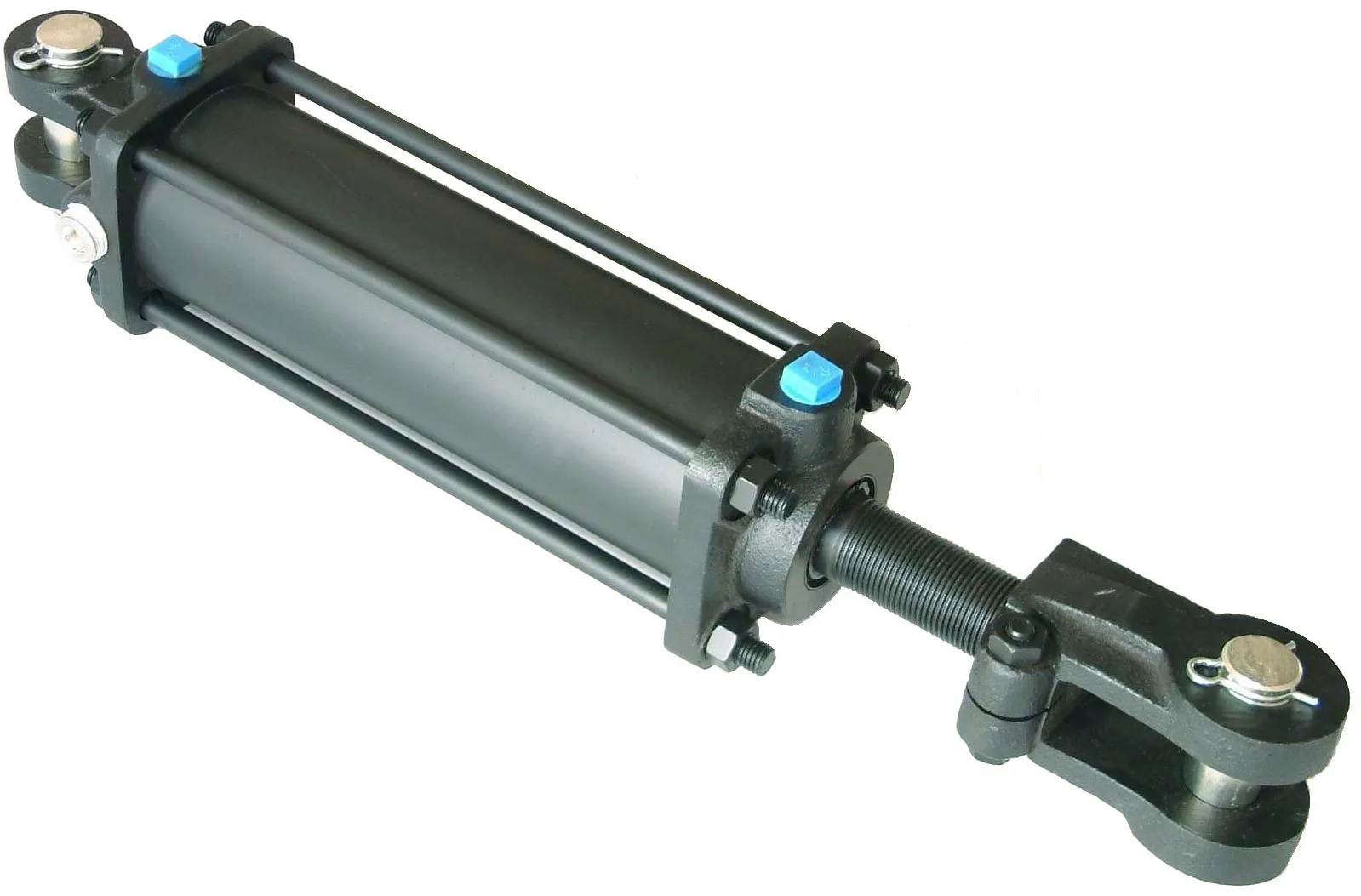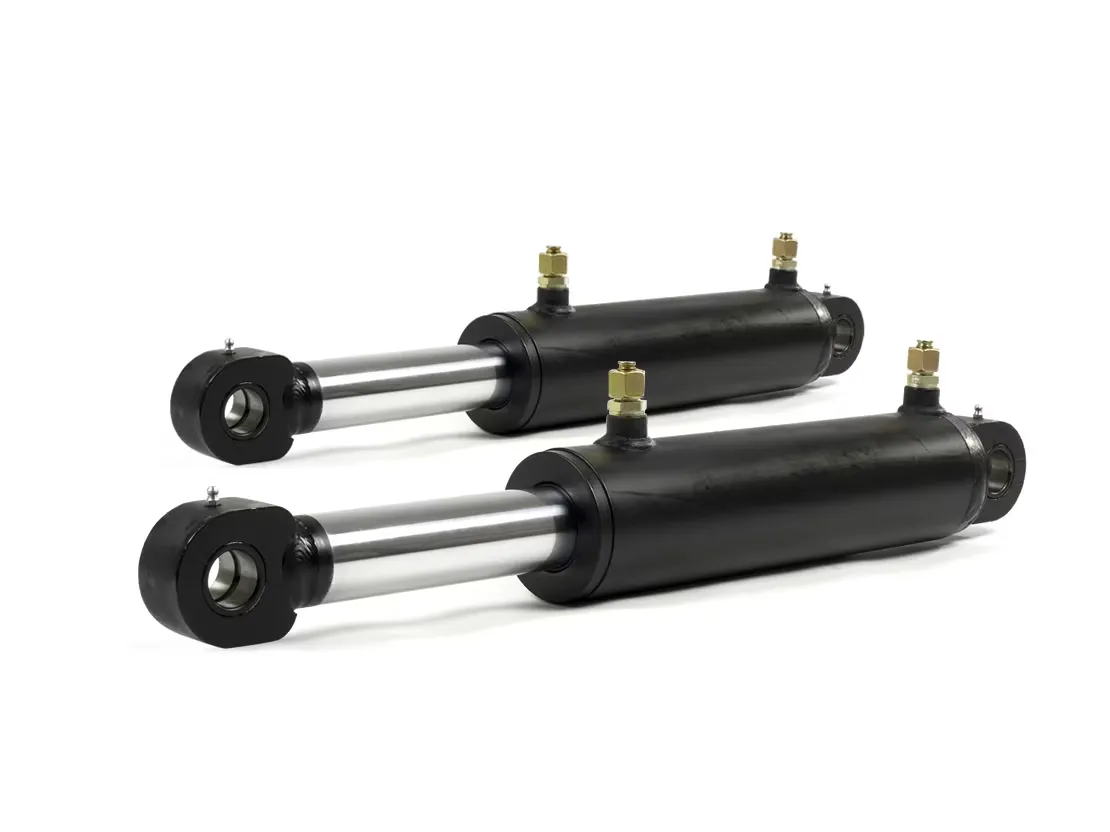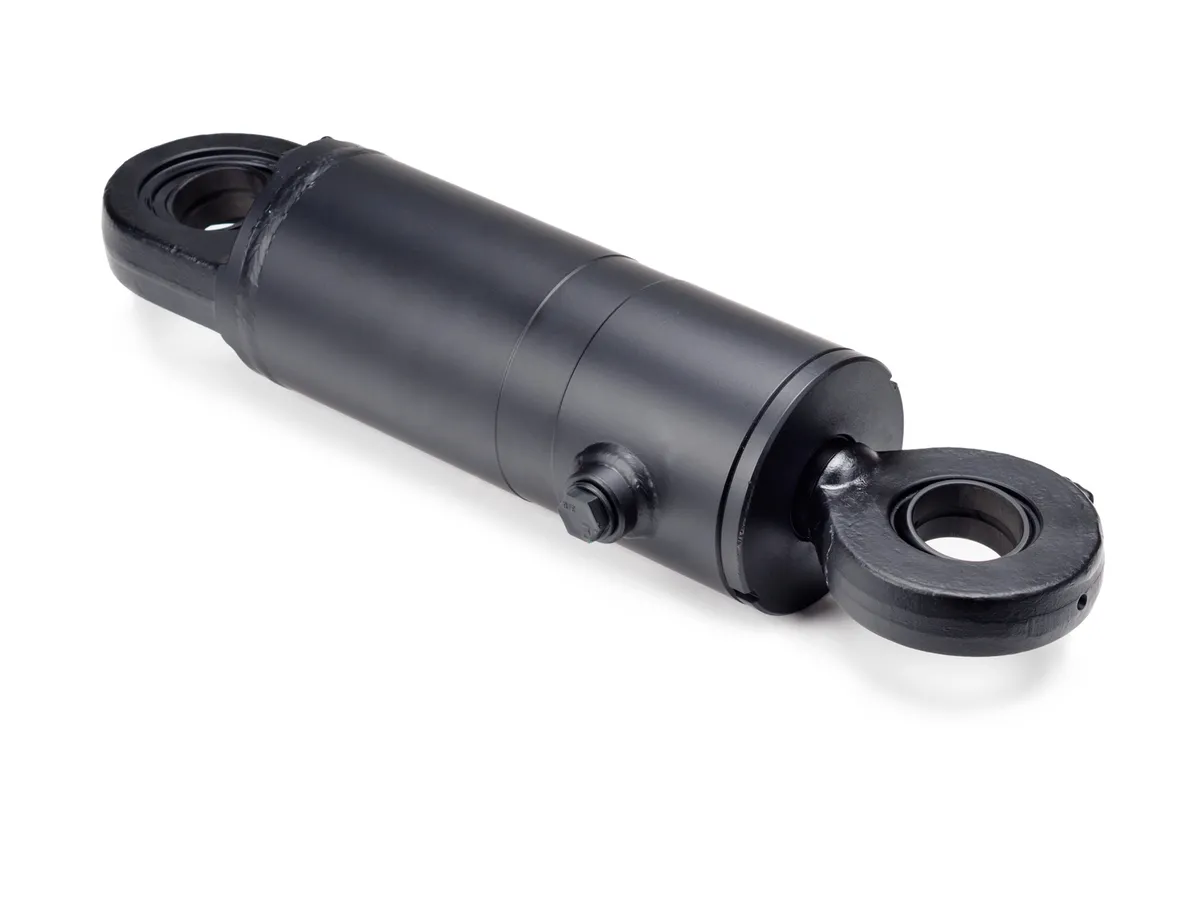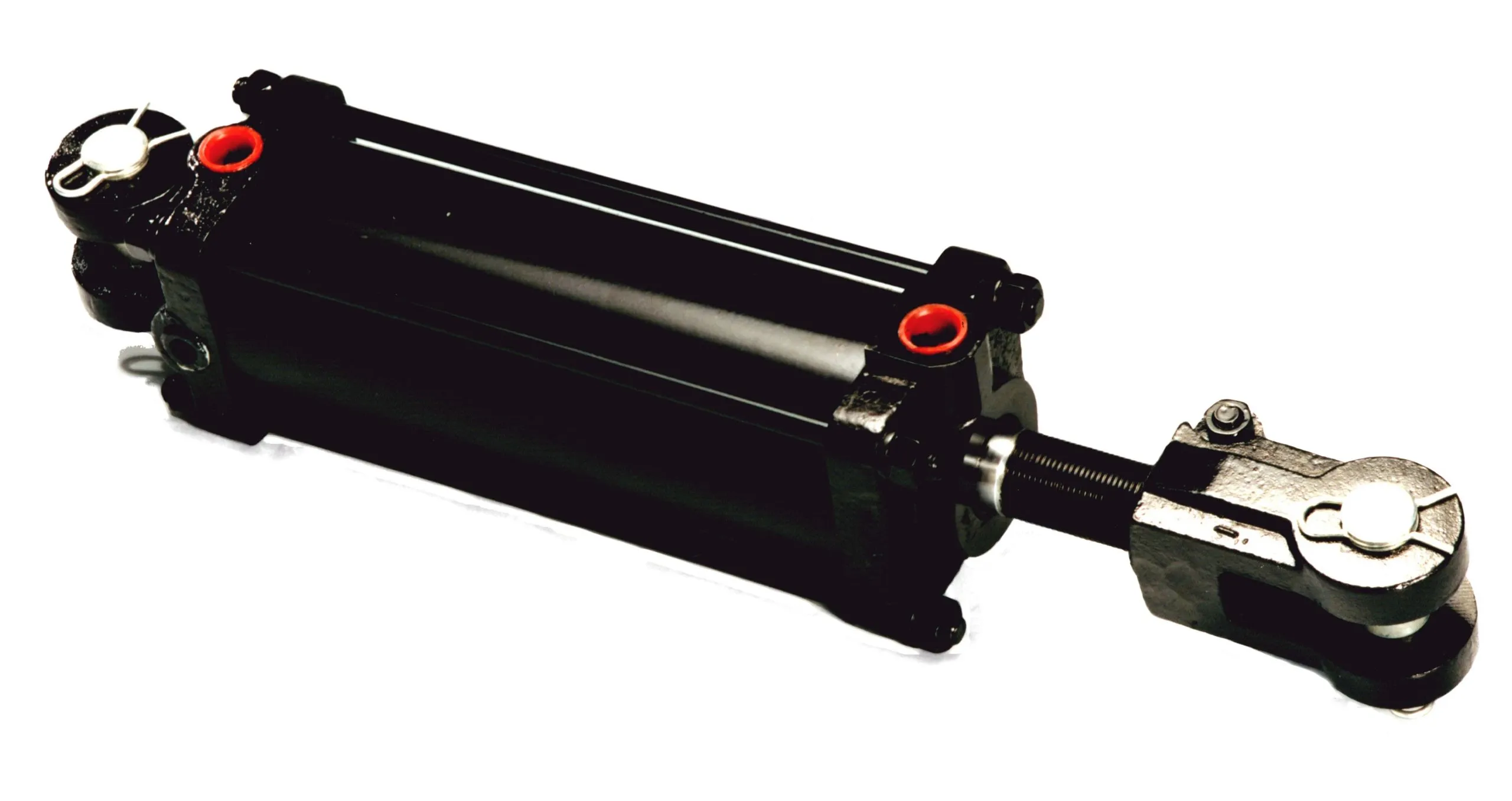Understanding Mill-Type Welded Hydraulic Cylinders
Introduction to Mill-Type Welded Hydraulic Cylinders

In the world of hydraulic systems, mill-type welded hydraulic cylinders play a crucial role in providing the necessary power and control for various applications. These cylinders are designed for heavy-duty and high-performance tasks, making them essential components in many industries.
Definition and Role
Mill-type welded hydraulic cylinders are hydraulic actuators that are used to create linear motion by converting hydraulic energy into mechanical force. These cylinders are known for their robust construction and ability to handle high loads and pressures, making them ideal for demanding applications.
Principle of Operation
The principle behind mill-type welded hydraulic cylinders is simple yet effective. When pressurized hydraulic fluid enters the cylinder, it pushes against a piston, causing it to move in a linear motion. This motion can be used to perform various tasks, such as lifting heavy loads or controlling equipment.
Application in Hydraulic Systems
Mill-type welded hydraulic cylinders are commonly used in hydraulic systems where high force and precision control are required. They can be found in a wide range of industries, including heavy equipment, industrial machinery, mining operations, and more.
Design Characteristics of Mill-Type Welded Hydraulic Cylinders

Component Design
The design of a mill-type welded hydraulic cylinder typically consists of a sturdy outer shell, an inner cylinder, a piston, and other key components. These components are carefully manufactured using advanced welding technology to ensure strength, durability, and optimal performance.
Manufacturing Process

During the manufacturing process, special attention is given to the welding techniques used to join the various components of the cylinder. This ensures that the cylinder can withstand high pressures and loads without compromising its structural integrity.
Welding Technology Considerations
Welding technology plays a crucial role in the design of mill-type welded hydraulic cylinders. The choice of welding method and materials used are carefully considered to ensure that the cylinder meets the required performance standards and can withstand the rigors of heavy-duty applications.
Working Principle of Mill-Type Welded Hydraulic Cylinders
The working principle of mill-type welded hydraulic cylinders is based on the conversion of hydraulic energy into mechanical force. When pressurized hydraulic fluid enters the cylinder, it creates a linear motion that can be used to perform various tasks, such as lifting, pushing, or pulling heavy loads.
Types and Configurations of Mill-Type Welded Hydraulic Cylinders
There are three main types of mill-type welded hydraulic cylinders, each with its unique configuration and design. These cylinders are designed to meet specific application requirements and can be customized to suit a wide range of industrial needs.
Single-Acting Cylinders
Single-acting cylinders operate in one direction, using hydraulic pressure to extend or retract the piston. These cylinders are commonly used in applications where a single force is required, such as lifting or pushing tasks.
Double-Acting Cylinders
Double-acting cylinders can operate in two directions, using hydraulic pressure to both extend and retract the piston. These cylinders are versatile and can be used in applications where precise control and force are needed in both directions.
Telescopic Cylinders
Telescopic cylinders consist of multiple nested stages that can extend to different lengths. These cylinders are ideal for applications where a long stroke is required but space is limited, allowing for efficient use of hydraulic power.
Advantages of Mill-Type Welded Hydraulic Cylinders
High Load Capacity
Mill-type welded hydraulic cylinders are known for their high load-bearing capacity, making them suitable for heavy-duty applications that require lifting or moving large loads with ease.
Long Stroke
These cylinders offer a long stroke length, allowing for precise control over the movement of the piston. This makes them ideal for applications where extended reach or positioning is necessary.
Rugged Durability
With their robust construction and high-quality materials, mill-type welded hydraulic cylinders are built to withstand harsh operating conditions and provide reliable performance over an extended service life.
Efficient Performance
These cylinders are designed to deliver efficient and consistent performance, ensuring smooth operation and optimal control in a wide range of industrial applications.
Customizable Options
Mill-type welded hydraulic cylinders can be customized to meet specific requirements, allowing for tailored solutions that address unique application needs and performance expectations.
Performance Characteristics of Mill-Type Welded Hydraulic Cylinders
Working Pressure and Range
Mill-type welded hydraulic cylinders are designed to operate at high pressures, typically ranging from 1500 to 3000 psi, depending on the application requirements. These cylinders offer reliable performance under challenging conditions.
Load Capacity Factors
Several factors can affect the load capacity of a mill-type welded hydraulic cylinder, including the design of the cylinder, the materials used, and the operating conditions. Understanding these factors is essential for selecting the right cylinder for the job.
Sizing and Configuration Considerations
When choosing a mill-type welded hydraulic cylinder, it is important to consider the size and configuration that best suits the specific application. Proper sizing ensures optimal performance and efficiency in operation.
Industries Using Mill-Type Welded Hydraulic Cylinders
Heavy Equipment Industry
In the heavy equipment industry, mill-type welded hydraulic cylinders are widely used in applications such as bulldozers, excavators, and cranes, where high force and precision control are essential for efficient operation.
Industrial Machinery Sector
Industrial machinery manufacturers rely on mill-type welded hydraulic cylinders to power various machines and equipment, ensuring smooth and reliable performance in demanding manufacturing environments.
Mining Operations
Mill-type welded hydraulic cylinders play a critical role in mining operations, where they are used in equipment such as loaders, haul trucks, and drilling rigs to handle heavy loads and deliver consistent performance in challenging conditions.
Construction Industry
Construction companies utilize mill-type welded hydraulic cylinders in equipment like cranes, concrete pumps, and hydraulic presses to facilitate the lifting, pushing, and moving of heavy materials and structures on construction sites.
Agricultural Sector
In the agricultural sector, mill-type welded hydraulic cylinders are essential components in farming equipment such as tractors, harvesters, and irrigation systems, providing the necessary power and control for efficient agricultural operations.
Design Considerations and Selection Criteria
Bearing Capacity
When selecting a mill-type welded hydraulic cylinder, it is important to consider the bearing capacity required for the specific application to ensure that the cylinder can handle the expected loads without compromising performance.
Sealing and Durability
Proper sealing is essential for preventing leaks and ensuring the long-term durability of the cylinder. Choosing high-quality seals and materials is crucial for maintaining the integrity and performance of the cylinder over time.
Safety and Maintainability
Ensuring the safety of operators and equipment is paramount when selecting a mill-type welded hydraulic cylinder. Regular maintenance and inspection are essential for detecting potential issues early and ensuring the continued reliability of the cylinder.
Sealing and Lubrication of Mill-Type Welded Hydraulic Cylinders
Sealing and lubrication play a critical role in the performance and longevity of mill-type welded hydraulic cylinders. Proper sealing with high-quality materials and regular lubrication maintenance are essential for ensuring smooth operation and preventing premature wear and tear.
Inspection and Preventive Maintenance

Regular inspection and preventive maintenance are key to prolonging the service life of mill-type welded hydraulic cylinders. By following a proactive maintenance schedule and addressing any issues promptly, operators can prevent costly downtime and ensure the continued reliability of the cylinder.
Installation Guide for Mill-Type Welded Hydraulic Cylinders
Proper installation is crucial for the optimal performance and safety of mill-type welded hydraulic cylinders. By following the manufacturer’s guidelines and using the correct tools and techniques, operators can ensure that the cylinder is installed correctly and functions as intended.
Maintenance Tasks for Mill-Type Welded Hydraulic Cylinders
Regular Inspection
Regular inspection of mill-type welded hydraulic cylinders helps detect potential issues early and prevent costly downtime. By checking for leaks, wear, and other signs of damage, operators can address problems before they escalate.
Proper Lubrication
Proper lubrication is essential for reducing friction and wear in mill-type welded hydraulic cylinders. By using the recommended hydraulic oil and following the manufacturer’s guidelines for lubrication intervals, operators can ensure smooth operation and extend the service life of the cylinder.
Seal Replacement and Calibration
Regular seal replacement and calibration inspections are necessary to maintain the integrity and performance of mill-type welded hydraulic cylinders. By replacing worn seals and calibrating the cylinder as needed, operators can prevent leaks and ensure the continued reliability of the cylinder.
Safety Considerations and Environmental Factors
Ensuring the safety of operators and equipment is paramount when using mill-type welded hydraulic cylinders. By following proper safety procedures, operators can minimize the risk of accidents and ensure safe operation in a variety of industrial environments.
Fault Diagnosis and Common Problems
Fault diagnosis and common problems in mill-type welded hydraulic cylinders can include issues such as leaks, seal failures, piston damage, and performance inconsistencies. By identifying and addressing these problems promptly, operators can prevent costly repairs and maintain the reliability of the cylinder.
Three Questions About Mill-Type Welded Hydraulic Cylinders
What are the advantages of mill-type welded hydraulic cylinders?
Mill-type welded hydraulic cylinders offer high load capacity, long stroke length, rugged durability, efficient performance, and customizable options to meet specific application needs.
What are the main components of a mill-type welded hydraulic cylinder?
The main components of a mill-type welded hydraulic cylinder include an outer shell, inner cylinder, piston, seals, and other key components that work together to convert hydraulic energy into mechanical force.
How do mill-type welded hydraulic cylinders differ from other types?
Mill-type welded hydraulic cylinders are known for their robust construction, high load capacity, and efficient performance, making them ideal for heavy-duty applications that require precise control and reliable operation.
Long Tail Keywords for Mill-Type Welded Hydraulic Cylinders
1. High Load Capacity and Durability
2. Customizable Options for Industrial Applications
3. Efficient Performance in Heavy-Duty Tasks
Our Company
We are a leading hydraulic cylinder replacement manufacturer with a comprehensive product line, serving domestic and international markets. Our company is known for its professional expertise, international certifications, customized services, state-of-the-art production equipment, and dedicated after-sales support.
Author: lyl
